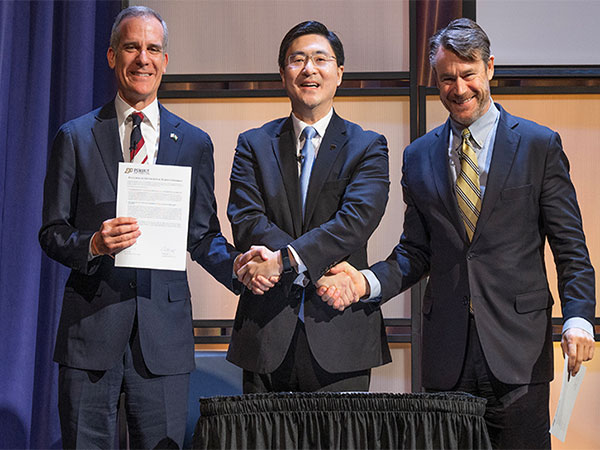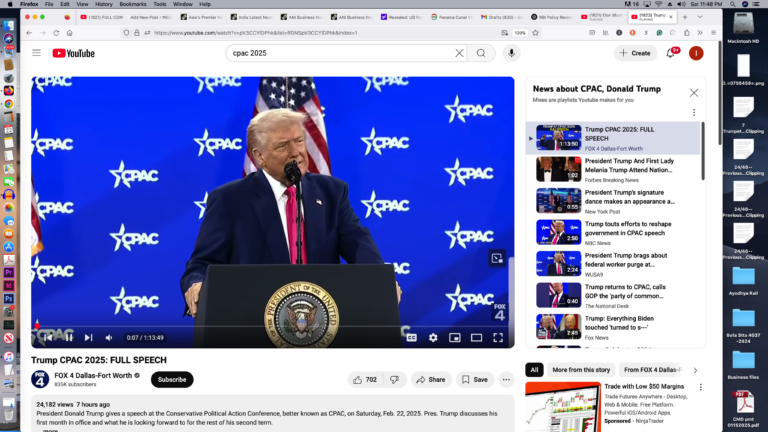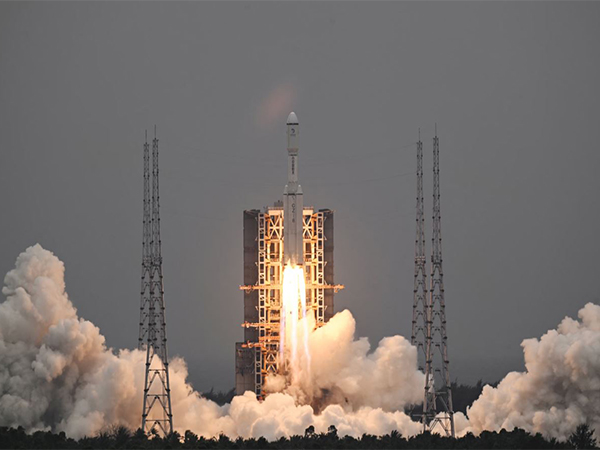
Indiana [US], November 2 (ANI): Purdue University has deepened its educational ties with India, launching two significant initiatives: the Purdue–India Centre for Education and Engagement and a US–India Centre of Excellence in Semiconductors.
Announced on November 1 during a fireside chat attended by Indiana Sen. Todd Young and US Ambassador to India Eric Garcetti, these ventures aim to foster joint degrees, industry relations, and alumni engagement, with support from both governments, an official press release by the University stated.
The initiatives are the latest chapter in Purdue‘s long relationship with India, which dates back 125 years to the university’s first Indian students. As part of the announcement, Purdue President Mung Chiang shared that the Purdue–India centres would enhance Purdue‘s presence in India and create new pathways for collaborative education in fields like artificial intelligence, data science, and business through partnerships with Indian institutions.
The Purdue–India Centre for Education and Engagement will serve as a central hub in India to strengthen Purdue‘s network. This includes offering joint degrees in high-demand fields, in partnership with strategic Indian institutions. The centre also aims to enhance Purdue‘s government and industry connections, establish partnerships with local universities, engage alumni, and boost student recruitment.
“Purdue is excited to grow our long-standing partnership with Indian institutions and companies across a broad range of disciplines,” said Chiang.
“Both our new Centre for Education and Engagement in Delhi and the new US–India Centre of Excellence in Semiconductors, joint with IIT Hyderabad and supported by our Indian and US governments, are milestone steps toward the expansion of this strategic partnership, with many opportunities for our students and faculty and a continued elevation of Purdue‘s global impact.”
Purdue‘s Indian student community is the university’s largest international student population, with over 3,000 students from India, and more than 300 Purdue faculty, researchers, and staff are of Indian origin, stated the press release.
The announcement comes on the heels of Purdue‘s recent meetings in three Indian cities. In September, a Purdue delegation engaged with Indian government officials, leading academic institutions, and industry leaders in discussions on educational collaboration, expanded research, and other initiatives.
“Purdue‘s expanding connections provide the US and India with the tools for ongoing global success,” said Young. “Forward-focused thinking like this can lay the foundation encouraging two-way trade and investment in the tech sector, particularly in high-impact areas like semiconductors and AI.”
During his September visit, Garcetti met with Purdue‘s delegation in New Delhi, where he and other Indian government officials explored ways for Purdue to deepen its support of mutual goals in AI, quantum computing, and critical technologies.
“Purdue has strong support in India and has demonstrated its support for Indian industry and academia as well,” Garcetti said. “Establishing a presence like this in India empowers students in both nations and strengthens workforce and educational ties. I applaud Purdue‘s leadership and the institutional partnerships which are contributing so much to the US–India relationship.”
Part of Purdue‘s new US–India Centre for Excellence in Semiconductors involves engaging with leaders from the semiconductor industry to advance joint research and develop a skilled workforce, in alignment with Purdue‘s land-grant mission in research, learning, and engagement, the press release stated.
Purdue‘s announcement is the latest in a series of collaborative moves. Earlier in May, the university became the flagship academic partner for semiconductors with the Indian government, focusing on joint research and development and training talent for the field.
During the visit, Young and Garcetti also toured Purdue‘s Birck Nanotechnology Centre, which houses the university’s semiconductor research facilities, including the 25,000-square-foot Scifres Nanofabrication Laboratory, one of the largest cleanrooms in an academic setting in the US. (ANI)




